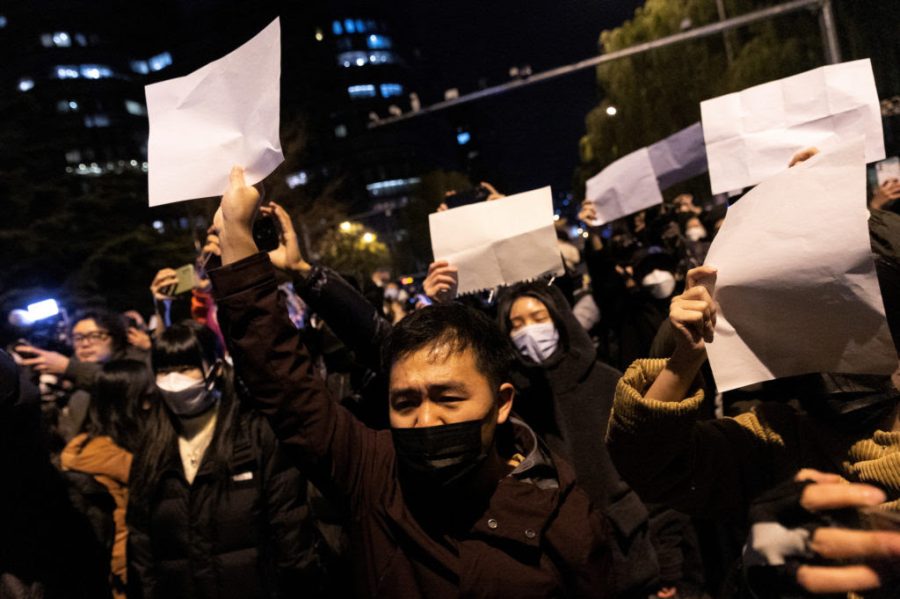Change in China
John Nagy/The Pilot, via Associated Press
December 13, 2022
After almost three years after the fateful Friday the 13th of March 2020, China has still continued to maintain a very rigid COVID policy. President Xi Jinping aims for “zero dynamic COVID” which entails strict lockdowns for its citizens. Although the public had believed these initiatives were helpful at the beginning of the pandemic, they now viewed them as burdensome. While it is true that the Coronavirus is still a threat to the health of many people across the world, in most countries, the panic has ebbed. China is the exception. The true disparity of the matter was fully realized during the World Cup where Chinese citizens were shocked to see stadiums swarming with unmasked fans. But, the issue goes beyond wearing a mask.
The sudden lockdowns that people in China are grappling with seem to be doing more harm than good. For example, in Shanghai, residents were told to prepare to stay in their houses for four days. However, the lockdown lasted a staggering 60 days and nights. Sophomore Audrey Long was appalled by this report, “at a certain point, it’s been too long,” she said, “you can’t keep people in their houses, it’s inhumane.” During this time, the government was largely unorganized and disheveled. Some people went without food and were forced to rely on the government’s ill-timed assistance for relief. In another case, a three-year-old boy was poisoned by carbon monoxide during a state-sanctioned quarantine. The family was initially denied access to the hospital due to COVID procedure, and by the time aid was rendered, it was too late. Sea King Kaitlen Pendergast, grade 10, reflected on this issue, “I think there should be some limits [for COVID], but not a lockdown. For example, they should be able to do basic things like go to school or the store.” Or the Emergency Room.
Hopefully, the Chinese government will respond to the protests and pleas of its people and reform the Covid policy to be less severe


